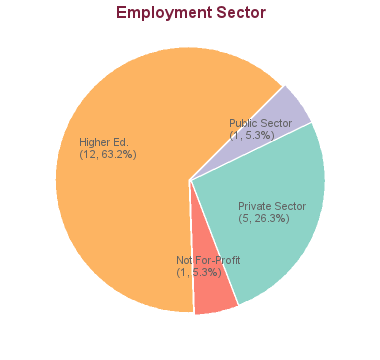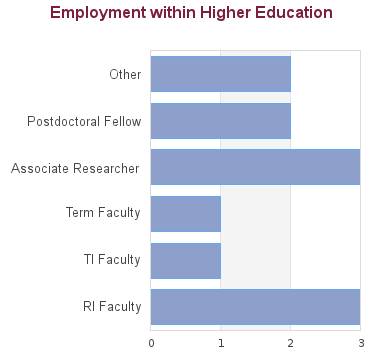
Ricardo Rivera-Acevedo
Job Title
Chief Scientific Officer. Cannabinologist
Employer
Ecovita Health Corp, Evitrade Health Systems

Review details about the recently announced changes to study and work permits that apply to master’s and doctoral degree students. Read more
The Deptment of Anesthesiology, Pharmacology & Therapeutics has a long-standing reputation of excellence in the field of drug research that goes back to 1951. Facult members in the Department are engaged in researh in areas of neural, cardiovascular, respiratory, endocrine and clinical pharmacology, pharmacoepidemiology, acute and chronic pain management, cardio-pulmonary sciences, clinical outcomes and patient safety, equity in medicine, evidence-based medicine and knowledge translation, intensive care, transplant and transfusion medicine, neurosciences and anesthesiology, obstetric anesthesiology, pediatric anesthesiology, perioperative technology and integration, pharmacoepidemiology, regional anesthesiology, as well as drug development. Exceptional students with an undergraduate degree may be admitted directly into the Ph.D. program. Some students do a combined M.D./Ph.D. program for which a separate admission into the M.D. program, by the Faculty of Medicine, is required. Students pursuing a Ph.D. will have the opportunity to interact with basic as well as clinical scientists.
The shared research interests in anesthesiology, pharmacology, drug development and therapeutics allow students to gain broad-based exposure to fundamental as well as medically-related aspects of drug research. Research projects in the department are funded by operating grants from CIHR, NSERC, The Heart Foundation, etc. In addition, many of our students receive the highly competitive CIHR and NSRC studentship awards.
The Faculty of Graduate and Postdoctoral Studies establishes the minimum admission requirements common to all applicants, usually a minimum overall average in the B+ range (76% at UBC). The graduate program that you are applying to may have additional requirements. Please review the specific requirements for applicants with credentials from institutions in:
Each program may set higher academic minimum requirements. Please review the program website carefully to understand the program requirements. Meeting the minimum requirements does not guarantee admission as it is a competitive process.
Applicants from a university outside Canada in which English is not the primary language of instruction must provide results of an English language proficiency examination as part of their application. Tests must have been taken within the last 24 months at the time of submission of your application.
Minimum requirements for the two most common English language proficiency tests to apply to this program are listed below:
Overall score requirement: 100
Reading
22
Writing
22
Speaking
22
Listening
22
Overall score requirement: 7.0
Reading
6.5
Writing
6.5
Speaking
6.5
Listening
6.5
Some programs require additional test scores such as the Graduate Record Examination (GRE) or the Graduate Management Test (GMAT). The requirements for this program are:
The GRE is not required.
Deadline to submit online application. No changes can be made to the application after submission.
Transcript DeadlineDeadline to upload scans of official transcripts through the applicant portal in support of a submitted application. Information for accessing the applicant portal will be provided after submitting an online application for admission.
Referee DeadlineDeadline for the referees identified in the application for admission to submit references. See Letters of Reference for more information.
All applicants have to submit transcripts from all past post-secondary study. Document submission requirements depend on whether your institution of study is within Canada or outside of Canada.
A minimum of two references are required for application to graduate programs at UBC. Each graduate program determines the type of reference (e.g. academic, professional) and number of references they require which can range from 2 to 4. References should be requested from individuals who are prepared to provide a report on your qualifications for the program.
Many programs require a statement of interest, sometimes called a "statement of intent", "description of research interests" or something similar.
Students in research-based programs usually require a faculty member to function as their thesis supervisor. Please follow the instructions provided by each program whether applicants should contact faculty members.
As the PCTH PhD program is research-based, students will need to find a faculty member who will supervise their research project. As faculty can supervise a limited number of students, we strongly encourage students to contact and confirm a supervisor before submitting their application.
Permanent Residents of Canada must provide a clear photocopy of both sides of the Permanent Resident card.
All applicants must complete an online application form and pay the application fee to be considered for admission to UBC.
| Fees | Canadian Citizen / Permanent Resident / Refugee / Diplomat | International |
|---|---|---|
| Application Fee | $116.25 | $168.25 |
| Tuition * | ||
| Installments per year | 3 | 3 |
| Tuition per installment | $1,875.34 | $3,294.66 |
| Tuition per year (plus annual increase, usually 2%-5%) | $5,626.02 | $9,883.98 |
| Int. Tuition Award (ITA) per year (if eligible) | $3,200.00 (-) | |
| Other Fees and Costs | ||
| Student Fees (yearly) | $1,144.10 (approx.) | |
| Costs of living | Estimate your costs of living with our interactive tool in order to start developing a financial plan for your graduate studies. | |
Applicants to UBC have access to a variety of funding options, including merit-based (i.e. based on your academic performance) and need-based (i.e. based on your financial situation) opportunities.
From September 2024 all full-time students in UBC-Vancouver PhD programs will be provided with a funding package of at least $24,000 for each of the first four years of their PhD. The funding package may consist of any combination of internal or external awards, teaching-related work, research assistantships, and graduate academic assistantships. Please note that many graduate programs provide funding packages that are substantially greater than $24,000 per year. Please check with your prospective graduate program for specific details of the funding provided to its PhD students.
This results in a net balance (any funding provided to the student minus tuition and fees) mean of $21,219 and median of $19,521.
All applicants are encouraged to review the awards listing to identify potential opportunities to fund their graduate education. The database lists merit-based scholarships and awards and allows for filtering by various criteria, such as domestic vs. international or degree level.
Many professors are able to provide Research Assistantships (GRA) from their research grants to support full-time graduate students studying under their supervision. The duties constitute part of the student's graduate degree requirements. A Graduate Research Assistantship is considered a form of fellowship for a period of graduate study and is therefore not covered by a collective agreement. Stipends vary widely, and are dependent on the field of study and the type of research grant from which the assistantship is being funded.
Graduate programs may have Teaching Assistantships available for registered full-time graduate students. Full teaching assistantships involve 12 hours work per week in preparation, lecturing, or laboratory instruction although many graduate programs offer partial TA appointments at less than 12 hours per week. Teaching assistantship rates are set by collective bargaining between the University and the Teaching Assistants' Union.
Academic Assistantships are employment opportunities to perform work that is relevant to the university or to an individual faculty member, but not to support the student’s graduate research and thesis. Wages are considered regular earnings and when paid monthly, include vacation pay.
Canadian and US applicants may qualify for governmental loans to finance their studies. Please review eligibility and types of loans.
All students may be able to access private sector or bank loans.
Many foreign governments provide support to their citizens in pursuing education abroad. International applicants should check the various governmental resources in their home country, such as the Department of Education, for available scholarships.
The possibility to pursue work to supplement income may depend on the demands the program has on students. It should be carefully weighed if work leads to prolonged program durations or whether work placements can be meaningfully embedded into a program.
International students enrolled as full-time students with a valid study permit can work on campus for unlimited hours and work off-campus for no more than 24 hours a week during academic sessions.
A good starting point to explore student jobs is the UBC Work Learn program or a Co-Op placement.
Students with taxable income in Canada may be able to claim federal or provincial tax credits.
Canadian residents with RRSP accounts may be able to use the Lifelong Learning Plan (LLP) which allows students to withdraw amounts from their registered retirement savings plan (RRSPs) to finance full-time training or education for themselves or their partner.
Please review Filing taxes in Canada on the student services website for more information.
Applicants have access to the cost estimator to develop a financial plan that takes into account various income sources and expenses.
23 students graduated between 2005 and 2013. Of these, career information was obtained for 19 alumni (based on research conducted between Feb-May 2016):


Those with a Ph.D. join the academia, drug control agencies in government and pharmaceutical industry or start their own drug development and consultancy units.
These statistics show data for the Doctor of Philosophy in Pharmacology (PhD). Data are separated for each degree program combination. You may view data for other degree options in the respective program profile.
| 2023 | 2022 | 2021 | 2020 | 2019 | |
|---|---|---|---|---|---|
| Applications | 18 | 25 | 16 | 18 | 13 |
| Offers | 2 | 2 | 2 | 2 | 1 |
| New Enrolment | 2 | 2 | 2 | 2 | 1 |
| Total Enrolment | 10 | 7 | 8 | 7 | 7 |
Students in research-based programs usually require a faculty member to function as their thesis supervisor. Please follow the instructions provided by each program whether applicants should contact faculty members.
As the PCTH PhD program is research-based, students will need to find a faculty member who will supervise their research project. As faculty can supervise a limited number of students, we strongly encourage students to contact and confirm a supervisor before submitting their application.
These videos contain some general advice from faculty across UBC on finding and reaching out to a supervisor. They are not program specific.
| Year | Citation |
|---|---|
| 2012 | The rhythmic beat of the heart relies on electrical signals. Dr. Sarhan studied ways in which a specific electrical signal is regulated when it is conducted along pathways known as sodium channels. Through his research he uncovered a new pathway which was found to be disrupted in patients with cardiac arrhythmia, and this confirms its physiological relevance. |
| 2012 | Dr. Fisher used British Columbian health databases to compare how long patients with rheumatoid arthritis are treated with drugs from a new group: biologic anti-inflammatory drugs. She studied ways in which patient and physician characteristics and study design influenced treatment duration. Her findings contribute to the body of research on rheumatoid arthritis. |
| 2012 | Dr. Bai investigated diesel exhaust and cardiovascular disease to extend our understanding of how particulate matter air pollution causes increased risk for heart attack. She found that exposure to diesel exhaust causes progression of atherosclerosis, a disease in which plaque builds up inside arteries and lead to heart attacks. |
| 2012 | Dr. Tadavarty has found that sleep-deprivation adversely affects synaptic transmission in the central nervous system. His observations enable a better understanding of the deficits associated with sleep loss. The identified changes in neurotransmission help in developing drug targets for ameliorating such effects. |
| 2012 | Dr. Sallam investigated why certain blood vessels are more prone than others to develop diabetic complications, which reslut in higher morbidity and mortality rates. Understanding vascular heterogeneity will open new venues for developing therapies that target specific vascular beds with minimal systemic side effects. |
| 2011 | Dr. Yang's research indicates that the equilibrium potential of GABA, a major neurotransmitter in brain, is regulated by different receptors, proteins and neuronal activity. Changes in the equilibrium potential, observed in this study, have significant implications for regulating brain activity and implications for promoting health and reducing disease. |
| 2011 | Dr. Raedschelders investigated the influence of general anesthetics on oxidative injury during heart surgery. This research provides insight into the damage that the heart sustains during the course of these operations. |
| 2010 | Dr. Perez systematically reviewed randomized trials of anti-hypertensive drugs that were administered shortly after an acute cardiovascular event. He found a previously unrecognized mortality reduction associated with nitrate administration after acute myocardial infarction. His research emphasizes the value of checking all-cause mortality the timing of drug administrations. |
| 2010 | Dr. Syyong showed that intracellular calcium oscillations dynamically control regional blood flow in the brains of the young and healthy. He discovered that loss of these calcium oscillations and their compensation by slower enzyme-based signaling is associated with vascular disease and possibly aging, thus explaining loss of function. |
| 2009 | Dr. Tossonian evaluated the treatment of HIV infection in injection drug users on the Downtown East side of Vancouver showing that treatment of HIV infection in this vulnerable population can be remarkably successful if implemented within a directly observed therapy program. |
Pharmacology offers training in cardiovascular pharmacology, neuropharmacology, viral pharmacology, free radical biology, and drug development. Additional training programs exist in therapeutics, evidence-based medicine, and clinical investigation which reflecting the close association between the disciplines of anesthesiology, pharmacology, and therapeutics.
Departments/Programs may update graduate degree program details through the Faculty & Staff portal. To update contact details for application inquiries, please use this form.

From academic excellence and modern facilities to our diverse degree program listings to being named one of the “most innovative universities” by Reuters in 2019, UBC has a lot to offer.